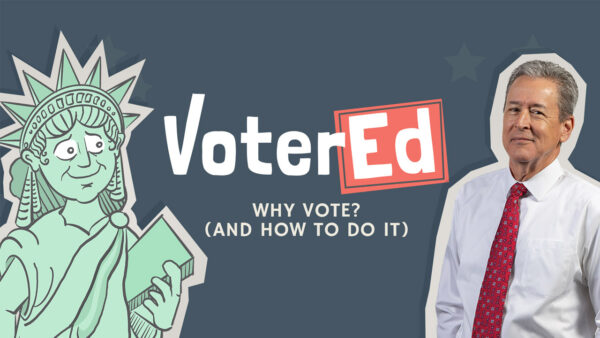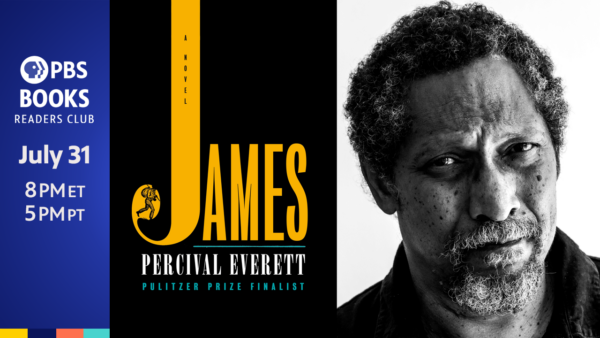A U.S. District Judge denied Maricopa County Sheriff Joe Arpaio’s request to dismiss a lawsuit alleging his deputies racially profiled Latinos. Five people and Somos America, a Hispanic civil rights group, filed the lawsuit last year. ASU Law Professor Paul Bender weighs in on the judge’s decision.
José Cárdenas: Good evening everyone and thank you for joining us. Last year, five people in Somos America, a Hispanic civil rights group, filed a lawsuit against the Maricopa County Sheriff's Office. Maricopa County Sheriff, Joe Arpaio, in Maricopa County alleging that they or their members were unreasonably detained or mistreated because they are Latino. Attorneys for the sheriff argued the lawsuit should be dismissed because it didn't specify a legal claim upon relief could be granted. Joining me for an analysis on Judge Morgius's decision is Arizona law professor Paul Bender. Thanks for joining us. And the decision we're talking about is his ruling earlier this month denying the sheriff's motion to dismiss...
Paul Bender: That means the case can go forward. The defendants said the case should be dismissed even if all of the things the plaintiffs alleged were true, they couldn't recover and the judge decided that's not true. If the allegations are true, they can recover. They make two kinds of claims. One is a claim of illegal searches and seizures, arrests mostly, and the other one is of a violation of equal protection clause. They were discriminated against because of their ethnicity. Its five people; two couples and one individual person. The one person, I think is the most troubling case. He was riding in a back seat of a car which they stopped for speeding and never gave the driver a speeding ticket. They asked him to get out of the car and asked for identification and proof that he was legally in the United States. He had a legal Visa, which he showed, nevertheless, he was arrested and in custody for nine hours before they finally released him. Not charged with anything because he wasn't doing anything wrong. And he said he was arrested because he was Hispanic.
José Cárdenas: The other two, what's the factual basis for their claims?
Paul Bender: One is a couple who went up a road that was closed and there was a police car and they were stopping them and telling them the road was closed and turning them back. This Hispanic couple was stopped and given a ticket after they asked why they were being asked to provide a Social Security card. The claim is one of discrimination. The Anglo were just warned and asked to leave and the Hispanic couple was given a ticket and were kept there for quite a while. And the third is two brothers, I think, who had a confrontation with the police, it wasn't anything serious. The police followed them, asked them to pull over in their car, arrested them, handcuffed them and slammed them against the car.
José Cárdenas: As I understand, they had pulled into the parking lot in front of their family business.
Paul Bender: And then the father came out and said, hey, those are my sons. They are both American citizens, born in the United States and then they said sorry, and took off their handcuffs and let them go. What's being charged is a pattern of mistreatment of Hispanic people because they are Hispanic; arresting them when there's no cause, keeping them in custody when there's no cause and a pattern of discriminatory enforcement of the laws. 10 people commit a minor traffic offense, one is Hispanic that person gets the ticket and the nine others are just given a warning.
José Cárdenas: And the judge assumed as she had to at the stages of precedence that the allegations were true.
Paul Bender: Right.
José Cárdenas: What does that mean in terms of the constitutional violations that were alleged?
Paul Bender: The constitutional violations would have been, one, take the person who was kept in custody for nine hours without any probable cause he committed any offense. He was in the back seat of the car, he wasn't the driver, not speeding, and they didn't even give the driver a speeding ticket. He had immigration documents showing he was legally in the United States, and yet held in custody for nine hours. That would be an illegal arrest and that would violate the fourth amendment. The couple treated differently from the Anglo people would have an equal protection claim that they were being treated differently and more harshly because they were Hispanic. And the other couple were arrested and put in handcuffs and held for a while and that would again be an illegal arrest and a violation of the fourth amendment because there was no cause to arrest them because they weren't doing anything wrong and they hadn't done anything wrong. It's both equal protection claims and fourth amendment claims; illegal arrests.
José Cárdenas: Obviously, the sheriff is disappointed in the judge's ruling; your opinion in terms of the correctness in the proceeding in this stage of the ruling?
Paul Bender: It's clearly correct at this stage of the proceedings. There are a couple of interesting legal points that may come up. First, you don't know if they're going to be able to prove these facts but you have to assume they are true. There's an interesting question whether the county is liable. There's a complex law about that. Counties are only liable for what law enforcement do if it's the county policy to do what they did. In this case, the question is who makes the county's policy? The plaintiffs say the sheriff. And they're going to have to prove that the sheriff's policy was to discriminate against Hispanic people and treat them harshly.
José Cárdenas: Now if they prove that though since they've also sued the county, do they end up disproving their claim against the county?
Paul Bender: No, it sounds backwards but it's -- if you can prove that the sheriff's policy was to do that that makes the county liable because he's the chief policy maker with regard to law enforcement. You can get damages from the county if you can show he was the policymaker and that his policy was to treat people unconstitutionally. There's another interesting question as to whether you can sue the sheriff's office. Is that a legal entity you can sue? I don't think that's important, because it doesn't matter if you can sue the sheriff, you can sue the county, I don't think it would matter if you could sue the sheriff's office.
José Cárdenas: They did sue the sheriff in his individual capacity as well.
Paul Bender: Well, yeah. You have to sue him as an individual, but the relief they're asking for, I think they dropped the damage claims and they're asking for an injunction and a declaratory judgment, what they were doing was wrong and they shouldn't do it in the future. So that would be an injunction that runs against him as sheriff.
José Cárdenas: Any thoughts about the fact they did not sue the sheriff's deputies that were involved in these detentions?
Paul Bender: I'm curious about why they did not do that because it would be easier with those people, you just have to prove what they did was unconstitutional. They arrested you without probable cause; they discriminated by arresting only the Hispanic people. That's easier to prove than to prove that's the sheriff's policy. There they're going to have to show that the sheriff encouraged them to do that or that was his policy to discriminate against the Hispanics. That would be a harder thing to prove than just the individual arrests by the deputies were unconstitutional. So I don't understand why they didn't sue the deputies. But suing the individual deputies isn't enough because even if you get an injunction, that doesn't stop the others. Normally you sue the individuals and the sheriff and the sheriff's office. Here they just sued the sheriff and the sheriff's office. They're looking for relief for the future. They're looking for an injunction that would stop the sheriff from carrying on this discriminatory conduct.
José Cárdenas: The judge's ruling came down the first part of February. This week, the sheriff announced that he was going to seek to have the judge removed from the case on the grounds that she's biased against him. What can you tell us about that?
Paul Bender: Well the ground was that her sister was biased against him. Apparently judge has a twin sister who has been outspoken in criticism of the sheriff. If the judge had done that she should recues herself because the sheriff is a defendant, and if the judge had said things that showed that she didn't have any respect for the defendant than she should recues herself and but I have never heard of somebody being charged with what their sister or brother, even a twin in this case, thought. That seems to be frivolous. There's no proof that the judge shared what her sister said. That fact your sister said something does not mean that you ought to recues yourself.
José Cárdenas: A couple of other developments in connection with sheriff Arpaio and the whole immigration issue. One is the call by congressman Conger and several others of congress for an investigation of Sheriff Arpaio.
Paul Bender: And his program and calls for investigations both by the justice department and the homeland security, which Janet Napolitano is now ahead of.
José Cárdenas: And when we -- we're talking about his enforcement of immigration laws under his agreement with the immigrations and customs and enforcement.
Paul Bender: That would be what they're asking Janet Napolitano to reconsider whether they want to continue to have this agreement with him that lets him enforce immigration laws, in light of the way he's doing it and asking that she reassess whether they want to continue to give him this authority because of the way he's using the authority that is discriminating.
José Cárdenas: And hasn't the request also been made of Attorney General Holder?
Paul Bender: If the sheriff's office has done the things the plaintiff alleged and if it's the policy of the office to do that; that would be a federal offense. That violates federal law; for law enforcement officers to act deliberately to discriminate because of their race or ethnicity. Or arrest people without probable cause. That's what they're asking the attorney general to do. The Bush Administration would have not have taken those requests seriously, but the people in the House and the judiciary are hoping the new administration will.
José Cárdenas: Speaking of the Bush Administration. The Mayor, Phil Gordon of the city of Phoenix, did make a request for an investigation, to my knowledge; there's been no reaction to that, any official one. Typically, based upon your experience in Washington, what would be the time frame that we would see in terms of response?
Paul Bender: There's always a transition period and it's a difficult period if you want to change policies because you have entrenched people who are full-time regular non-political employees who have been doing something a certain way and it's not easy to get them to change what they're doing and it's harder for Holder to get an investigation like that going, or Janet Napolitano to do it now in the transition stage because they are trying to get their own deputies in there, they're trying to staff their own department with people who share their values. Where as the people who have been running and who are still running because these confirmations take a while and then you have to confirm the subcabinet and so on. And the people who are in charge are still people who were part of the Bush Administration and it's not easy to get them to change and whether they do investigate this would be a good indication of how fast the Obama Administration is going to be and how anxious they are to reverse these.
José Cárdenas: Secretary Napolitano, said she is going to launch an investigation of a work cite raid in the state of Washington by ice, what can you tell us about that?
Paul Bender: Well that's a perfect example of what I was talking about. She said that she didn't even know about it. She found out about it after it happened and that she would not have authorized it. What goes on in that raid probably had been planned for months. She comes in office, she didn't know about it and no one has told her about it and the career people who decided to do that are going to do that and not ask for permission. They got permission from her predecessor so why should they get permission now. She's got to take control of that department and that's not easy. Especially in a department that's probably entrenched in a practice of doing these kind of sweeps.
José Cárdenas: Thanks for joining us on "Horizonte" to talk about these important issues. Glad to have you back.
Paul Bender:ASU law professor;




















